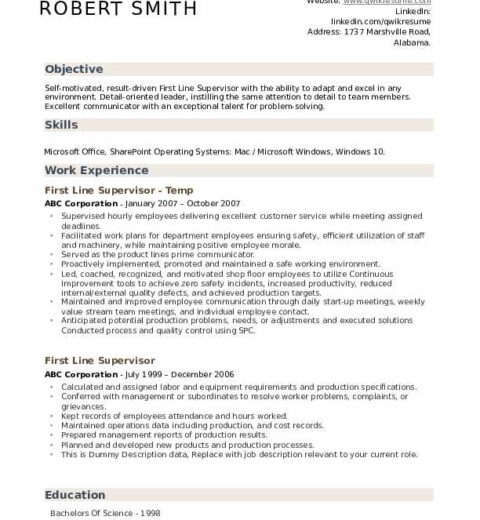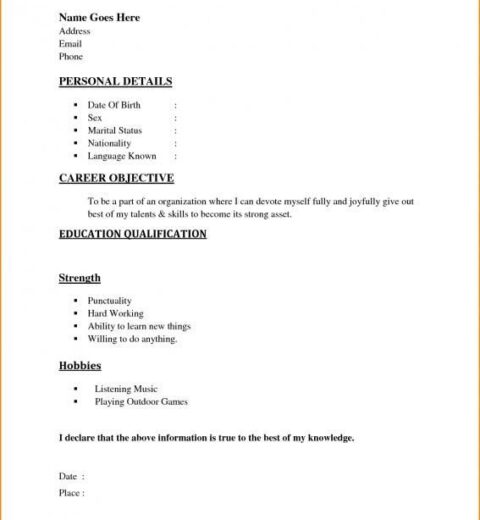In the current competitive job market, crafting an exceptional resume is more crucial than ever. A well-structured resume not only highlights your qualifications and skills but also aligns with the expectations of potential employers. Understanding how to create a great resume that effectively communicates your value proposition is paramount. Herein, we will dissect the essential elements of a powerful resume, address common buyer concerns, and imbue the discussion with pertinent keywords that resonate with job seekers and recruiters alike.
Understanding the Purpose of a Resume
A resume is a succinct document that encapsulates your professional history, educational background, skills, and accomplishments. Its primary objective is to secure an interview; therefore, it must present you as a compelling candidate. Rather than being a mere listing of previous jobs and responsibilities, a resume should tell the narrative of your career trajectory and professional identity. Recruiters often spend mere seconds scanning resumes, making it essential to convey your narrative swiftly and powerfully.
Choosing the Right Resume Format
The format of your resume plays a critical role in its effectiveness. There are three primary formats to consider: chronological, functional, and combination. Each serves different purposes and appeals to various types of job seekers.
- Chronological Resume: This format is the most traditional and widely accepted. It lists your work experience in reverse chronological order. This is advantageous for those with a robust employment history and a clear career progression.
- Functional Resume: Ideal for individuals with gaps in their employment history or those making a career change, this format emphasizes skills over experience. It allows candidates to showcase their competencies prominently.
- Combination Resume: This is a hybrid format that merges aspects of both chronological and functional resumes. It allows for flexibility in presenting relevant experience while still showcasing skills.
Choosing the right format involves careful consideration of your career history, the industry standard, and the specific job you’re applying for. The goal is to create a resume that not only reflects your qualifications but also positions you as the ideal candidate for the role.
Crafting a Compelling Summary Statement
Your resume should begin with a summary statement or objective that succinctly summarizes who you are as a professional. This is your elevator pitch on paper. It should encapsulate your key skills, years of experience, and what you bring to the table.
For instance, instead of saying, “Dedicated marketing professional,” consider a more detailed approach: “Dynamic marketing strategist with over eight years of experience driving successful campaigns for Fortune 500 companies.” This specificity will prompt recruiters to delve deeper into your credentials.
Highlighting Relevant Skills
When enumerating your skills, focus on those that align with the job description. A targeted approach speaks volumes and indicates your attention to detail. Use a mix of hard skills (technical abilities specific to your role) and soft skills (interpersonal attributes). Consider using keywords from the job posting; this strategy not only aligns your resume with the job but also enhances your visibility in Applicant Tracking Systems (ATS) employed by many organizations.
Detailing Work Experience
Your work experience segment should be the focal point of your resume. Detail your previous roles with emphasis on achievements rather than mundane tasks. Use quantifiable results to substantiate your claims. For example:
- “Increased sales by 30% over two quarters by implementing innovative lead generation strategies.”
- “Led a team of 10 to successfully complete a two-year infrastructure project ahead of schedule and under budget.”
These bullet points not only convey responsibilities but also illustrate the impact of your contributions. Tailoring your accomplishments to speak to potential employer needs is essential for engaging their interest.
Education and Certifications
Following your experience, list your educational background. Include your degree, the institution, and the year of graduation. If you have relevant certifications or continued education that bolster your qualifications, include them as well. Certifications can likewise add credibility to your expertise and should be strategically prioritized based on relevance to the job.
Additional Sections to Consider
Beyond the fundamental components, several additional sections can enhance your resume:
- Volunteer Experience: This can demonstrate your commitment to community service and showcase transferable skills.
- Professional Affiliations: Membership in relevant associations can reflect your dedication to your field and networking prowess.
- Publications or Projects: If applicable, these elements can add depth to your profile and highlight your engagement with your industry.
Visual Appeal and Clarity
A great resume should be visually appealing and easy to read. Use a clean layout with an appropriate font and adequate margins. Bullet points enhance readability, while bolding key sections facilitates quick scanning. Avoid excessive jargon or clutter; every element should add value to the overall narrative.
Tailoring for Each Application
One of the most critical yet often overlooked aspects of resume creation is the necessity to tailor your resume for each application. A one-size-fits-all approach is unlikely to yield results. Spend time revisiting the job description and ensuring your resume highlights the most pertinent experience and skills that align with the employer’s needs. This effort reflects not only your qualifications but also your genuine interest in the position.
Final Review and Proofreading
Before submission, conduct a thorough review of your resume. Proofreading is non-negotiable; even minor typographical errors can detract from your professionalism. Consider utilizing tools or enlisting a peer for feedback. They may catch areas for improvement that you overlooked.
In conclusion, a great resume serves not just as a summary of your career but as a strategic tool designed to land interviews. By focusing on structure, clarity, and relevance, while addressing key concerns like employability and skill alignment, your resume can capture the interest of hiring managers. A well-crafted resume is indeed your ticket to opening doors in your career journey.




